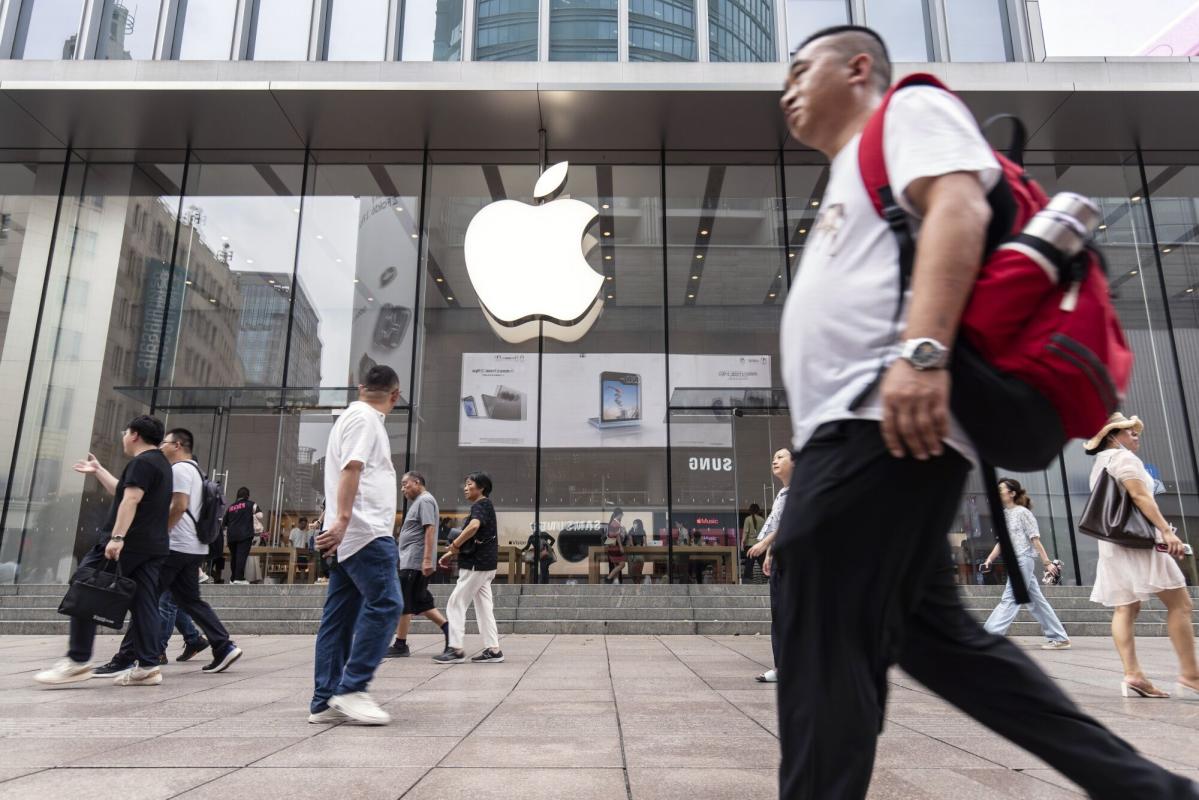“Christmas just came and went, but for Apple, the holiday season was a bit of a Grinch. According to a recent report by Bloomberg, the tech giant’s iPhone sales in China took a dramatic plunge of 18% over the festive period. This staggering drop is a significant concern for Apple, considering China is one of its most lucrative markets. As the world’s largest smartphone market, China has always been a crucial territory for Apple to maintain its dominance. But what’s behind this sudden decline in iPhone sales? Was it the increasing competition from Huawei and other local brands, or perhaps the recent high prices of Apple’s flagship devices? In today’s fast-paced tech landscape, it’s more important than ever to stay ahead of the curve. Join us as we dive deeper into the numbers and explore the implications of this significant decline for Apple’s future in China.”
The Decline in iPhone Sales

According to independent research, sales of Apple iPhones plummeted 18.2% in China during the December quarter, a significant setback for the company in its largest market outside of the US.
The decline in sales was attributed to the lack of AI features in Apple’s latest iPhone models, which were not accessible in China due to the company’s failure to secure a local partner to provide on-device and cloud AI infrastructure.
Causes of the Decline: Was it the Lack of AI Features or Competition from Huawei?
Apple’s failure to provide AI features in China was a major factor in the decline in sales. The company is still in talks with various local partners, including Baidu Inc. and Tencent Holdings Ltd., to provide AI upgrades, but no deal has been concluded.
Another factor contributing to the decline was the rise of Huawei, which launched its mid-end Nova 13 series and high-end Mate 70 series during the period, driving a 15.5% year-over-year increase in sales.
Global Impact: How Did the Decline in China Affect iPhone Sales Worldwide?
The decline in China drove a global slump of 5% in iPhone sales during the key shopping period, underscoring an uneven debut for the latest generation of iPhones.
The decline in global iPhone sales had significant consequences for Apple’s revenue and market share, as the company struggled to maintain its dominance in the premium smartphone segment.
A 5% Slump in Global iPhone Sales During the December Quarter
The global slump in iPhone sales was attributed to the decline in China, which is the company’s largest market after the US. The decline in sales was a major setback for Apple, as it struggled to maintain its market share in the face of increasing competition from Huawei and other local players.
The Consequences for Apple’s Revenue and Market Share
The decline in global iPhone sales had significant consequences for Apple’s revenue and market share. The company’s revenue declined by 5% during the December quarter, while its market share in the premium smartphone segment decreased by 2% year-over-year.
The Rise of Huawei: What’s Behind the Company’s Success in China?
Huawei’s competitive advantage in China was attributed to its mid-end and high-end devices, which were launched during the period and drove a 15.5% year-over-year increase in sales.
Huawei’s Competitive Advantage: Its Mid-End and High-End Devices
Huawei’s mid-end Nova 13 series and high-end Mate 70 series were major drivers of the company’s success in China. The Mate 70 handsets, in particular, were notable for their ability to give users the option to use software completely free of US technology, via Huawei’s HarmonyOS Next operating system.
The Mate 70 series was also powered by made-in-China chips, which helped Huawei to reclaim share of the premium segment in China.
Conclusion
Conclusion: China’s Shift in Mobile Market Sentiment Spells Trouble for Apple
The recent report from Bloomberg, revealing an 18% plunge in Apple iPhone sales in China over the holiday season, paints a stark picture of the shifting sentiment in the world’s largest mobile market. The article highlights the devastating impact of the Chinese economy’s slowdown, intensifying competition from local players like Huawei and Xiaomi, and the growing influence of Chinese-made smartphones on global sales. Moreover, the research underscores the unsettling reality that Apple’s market share in China has been steadily declining, leaving the company struggling to regain its footing in the region.
The significance of this development cannot be overstated. As China’s mobile market continues to evolve, the absence of Apple’s iconic iPhones from the consumer’s shopping list has far-reaching implications. Not only does it indicate a decline in the brand’s appeal to younger, tech-savvy Chinese consumers but also poses a significant threat to Apple’s global sales projections. As the Chinese market’s influence on global trends continues to grow, Apple must adapt and innovate to reclaim its position and revitalize its brand in the region.
